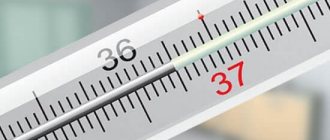Work that requires complete dedication, household chores and caring for family, communication with friends and family, visiting beauty salons and fitness centers in order to maintain beauty and health. And most of us try to do all this in 24 hours a day. As a result, we experience stress.
It is very important to recognize stress in time. It is important to know yourself and be able to determine when your level is beyond your limits, because you can get used to stress and make it part of you. It can become normal and you won't even notice how harmful it can affect you. Stress will not only make you feel like life is meaningless, but it will also increase your risk of various diseases.
What is stress
Stress is a completely normal response of the body to overwork or threat. At the same time, the body tries to resist in every possible way, as a result of which we suffer. When this protection works normally, it helps a person to be cheerful, energetic, concentrated and on a pedestal. But stress often has a detrimental effect on our mental and physical health.
Photo on Unsplash
Stress is a long-term, continuous, depressing emotional tension. When growing multitasking does not allow you to relax for a minute. When you constantly need to look for solutions, here and now. When everything seems global and urgent.
How does stress develop?
But when stress occurs too often or exceeds the body’s capabilities, it begins to weaken and lose strength.
It can even lead to serious illness. three phases in the development of stress :
- mobilization of the body's defenses and resources to combat the stress factor. At this stage, hormones are released that give a boost of energy;
- confrontation - searching for a way out of the situation. The body tries to return to normal functioning due to hormonal changes;
- exhaustion – with prolonged exposure to traumatic circumstances, the body loses the ability to resist, adapt and becomes vulnerable to all kinds of diseases.
The severity of each stage depends on the individual characteristics of the person, his state of health, type of temperament, character.
Signs and symptoms of stress
Each person experiences stress differently. The common thing about the symptoms of stress is that it affects our mind, body and behavior. A person becomes aggressive, has a bad mood, suicidal thoughts in his head, and very often, due to nervous disorders, gets sick.
After stress, an individual becomes overly emotional and cannot sit still. Or, on the contrary, too self-contained, silent, distant, passive, unemotional. The person seems to be paralyzed by stress and at the same time seething inside. Here are a few signs of stress in a person:
- inability to concentrate on one thing;
- inability to prioritize – everything seems important;
- irritability, anxiety, anger at the slightest reason;
- sleep problems (long periods of falling asleep, insomnia);
- sudden opposite emotions (laughter, tears for no particular reason);
- problems with appetite;
- chronic fatigue that does not go away even after sleep.
How does stress affect the body?
Severe or prolonged stress may well cause the development of diseases.
In this case, the most weakened systems of the body suffer, so the consequences vary from person to person. Against the background of a stressful state, the following may develop :
- bronchial asthma due to constant tension of the muscles involved in the respiratory system;
- hypertension, heart and vascular diseases due to constantly high blood pressure and rapid heartbeat;
- peptic ulcer;
- neurotic and depressive disorders;
- damage to the gastric mucosa due to increased production of gastric juice;
- diabetes – due to the liver releasing an additional portion of glucose and increasing its concentration in the blood;
- gynecological problems up to infertility.
It is impossible to predict exactly what problems stress will provoke. Moreover, they can appear individually or in groups, or all at once, in a complex.
Consequences of constant stress
- Heart attacks . Stress leads to increased blood pressure. Every time you get stressed, your blood pressure goes up. In addition to this, your blood flow also increases significantly, which leads to the release of triglycerides and cholesterol into the blood. People who smoke and are obese are also at higher risk of serious heart problems.
- Choking . Children who are regularly stressed are at higher risk of developing respiratory diseases such as asthma. Studies in children have shown that stress can significantly worsen asthma. There is also evidence to suggest that chronic stress in parents can negatively impact the health of their children.
- Gastritis . Some people with chronic stress suffer from gastritis, which further complicates their condition. Stress-induced gastritis, also known as stress-related erosive syndrome, can cause superficial hemorrhages and mucosal erosion in patients who are seriously ill and in people exposed to stress.
If all else fails
But what to do if you signed up for fitness, walk the dog for a long time every evening, go to bed no later than 23.00 and are seriously interested in knitting, but you still can’t cope with stress? First of all, don’t despair
and don’t get depressed.
If you don't know how to change a faucet, you call a plumber, right? It’s the same with stress: if you couldn’t resolve the issue on your own, contact a psychotherapy specialist .
psychotherapeutic techniques are used to combat stress ,
so you will have the opportunity to choose what suits you:
- Cognitive-behavioral therapy – psychological training that allows you to identify negative thoughts, analyze them, change your behavior pattern, attitude towards a specific situation;
- art therapy – the so-called “art treatment”, which allows you to throw out emotions and understand yourself;
- auto-training – training in methods of controlling breathing and muscle tone, changing internal attitudes.
There are a lot of such methods; an experienced specialist will definitely help you choose the most suitable and effective option.
How to relieve stress: ways to deal with stress
It is very important not to lose composure and control. Manage your emotions using the following methods. Start in order:
- Take a moment, sit down . Ask yourself about the importance of the problem that is gnawing at the moment. How will its decision or lack of decision affect the situation in 1 year, 5 years? The answer will help you understand the importance of anxiety.
- Recording thoughts . Phrases, sentences, individual words - jot everything down on a draft. This will be a distraction during the acute period. Read what you wrote the next day - this way you will understand the significance of the events and the actions taken.
- Stimulate your nerves . An effective method is to run your index finger horizontally across your lips. It is based on the physiological response of the parasympathetic nervous system. Quickly and effectively soothes.
- Muscle tension . Gather your nerves! Tighten all your muscles, clench your fists, and grit your teeth for 10 seconds. Feel how your body switches and reacts with prolonged relaxation.
- Try any classic methods : a walk in the fresh air, relaxation in the bath, herbal tea, gourmet food or delicious chocolate, physical activity, an hour for a hobby, chatting with friends, and so on.
- Work on yourself . Try to turn negative into positive. Don't let stress overcome you. Spilled coffee on yourself? Think of a spoiled item as unnecessary, old, inconvenient, ready to be thrown away a long time ago.
- Try to interrupt the overwhelming stressful thought . Clap your hands. Say out loud that you will definitely return to her later. Promise yourself to remember the problem at a certain hour.
- Be available . Do not turn off communications. Don't ignore other people's attention. On the contrary, run away from the desire to hide from everyone. Chat on social networks. And then have a good cry.
Agree, there is nothing complicated in such techniques. If you turn to them for several days during times of stress, they will definitely help. Even one technique can give the desired effect, if the situation has not become critical.
Getting stress under control will reduce your risks of developing Alzheimer's disease, depression, asthma, gastritis, obesity and heart disease. All it takes is a little joy, treat yourself and relax. Even though you may think it is impossible to completely get rid of stress, small lifestyle changes will definitely improve your condition.
Photo by Artem Beliaikin on Unsplash
Medical treatments are great for dealing with stress. Of course, the amount of time you can devote to procedures will depend on your schedule and responsibilities. However, even one hour a week spent at the spa can be very beneficial. Most salons offer a calm and relaxing environment, which is exactly what people suffering from extreme stress need. Such procedures also help to lose weight.
To keep stress to a minimum, you should adopt a low-sugar diet. Sugar increases blood glucose levels, which leads to temporary nervousness and anxiety. An excellent alternative to sweet foods such as cookies, candies and cakes - fruits and berries. They contain cortisol, which helps reduce stress.
Causes of stress
Everyone experiences stress differently. What is slightly disturbing to one person may be very depressing to another, and vice versa. But many causes of stress always have, to one degree or another, a negative impact, for example:
- Personal bullying
- Work overload
- Job loss
- Marriage or relationship problems
- Breakup or divorce
- Death in the family
- Difficulties at school
- Family problems with relatives
- Too busy schedule
- Recent move
The human body reacts to stressors in the same way, regardless of the cause. Its response is the body's way of coping with difficult situations or stress. The influence of stress causes changes in the hormonal, respiratory, cardiovascular and nervous systems. For example, stress can cause increased heart rate, irregular breathing, increased sweating, and muscle tension.
On the other hand, it can also give you a boost of energy, triggering the body's fight-or-flight response. It is this chemical reaction that prepares your body to defend itself because it thinks it is under threat. This type of stress helped our ancestors survive in the wild.
Relieving stress: advice from a psychologist
In order to relieve stress, you need to be able to recognize, accept and deal with its causes:
- Try to react less to minor irritants.
- Look at the problem as a challenge, a way to become better, more experienced.
- Accept the things you cannot control.
- Surround yourself with people with a positive attitude who look at the glass and claim it is half full.
- Breathe more in the fresh air, do yoga, read a motivational book.
- Go in for sports, then you will not have time for bad thoughts, plus improve your memory and health.
- Get enough sleep, listen to rhythmic music and spend time with loved ones.
- Give yourself a hobby.
How to avoid stress?
The effect of serious stress on the body is clearly negative. But doctors and psychologists have perfectly studied the mechanism of development of such conditions and have found many ways to prevent and combat them. The most interesting thing is that there is nothing complicated about preventive measures. For example, the following help prevent stress :
- morning exercises, regular sports training, especially those related to water (swimming, water aerobics);
- regular rest, preferably in nature;
- reasonable planning of the working day - alternating periods of intense work and proper rest;
- healthy sleep - at least 7-8 hours a day, not once a week, but every day;
- complete nutrition.
As you can see, these are typical tips for those who want to lead a healthy lifestyle
. Hence the conclusion: it is he who is the most terrible enemy of stress.
Exercises to relieve stress
These exercises help relieve muscle tension and improve your emotional state. Thanks to this, they promote restful and sound sleep. And good sleep is the key to good morning well-being, good health and beauty.
- Exercise 1 . Sit on the floor with your legs wide apart. Look at your left foot. Place the palm of your right hand on your left side. Taking a deep breath, raise your left hand, exhaling, move it to the right. Repeat the exercise with your right hand.
- Exercise 2 . Bend one leg under you. Exhaling, bend towards the extended leg, trying to reach its foot as much as possible. Repeat the exercise, changing legs.
- Exercise 3 . Lying on your back, pull your legs bent at the knees to your chest, clasping them with both hands. To better stretch and relax your muscles, gently rock back and forth.
- Exercise 4 . Lying on your back, cross your left leg bent at the knee over your right and press it to the floor with your right hand. Repeat the exercise, changing legs.
Symptoms
Symptoms of nervous stress are as follows:
- Uncontrollable panic;
- Increased heart rate;
- Increased sweating;
- Unreasonable anxiety;
- Anxiety;
- Increased muscle tension;
- General fatigue;
- Sleep disturbance;
- Irritability;
- Loss of concentration.
Symptoms can increase gradually or suddenly fill the consciousness. Panic attacks most often do not last long. Psychologically, they are expressed by uncontrollable and inexplicable horror. Physiologically, panic is manifested by increased heart rate and sweating, chest compression, and suffocation. Nausea appears, breathing becomes shallow, and the body begins to tremble. A rise in temperature can also be a sign of a panic attack. The most obvious signs of this are anxiety and restlessness.
Evening yoga for stress
If you like yoga, two simple poses will allow you to achieve complete relaxation and help you calm down after a busy day.
- Pose 1 . Sit on the floor with your legs crossed. Place your hands on your knees. Try to focus all your attention on the pose you have taken. The base of the spine should be as close to the floor as possible, and the head should be raised high. Imagine that your spine is stretching.
- Pose 2 . Lying on your back with your legs wide apart, place your hands, palms up, about 15 cm from your torso. Slowly rotate your limbs, first outward, then inward. Turn your head from side to side. Imagine that your legs are separated at the knee joints, that your head is separated from your shoulders. Breathe with your stomach, imagine that you are being pressed to the floor by the force of gravity and with each inhalation it becomes stronger and stronger.
Causes
There are a number of reasons that can trigger nervous stress.
The most common factors contributing to the development of stress in women include:
- loneliness;
- loss of a loved one;
- problems in personal relationships;
- somatic diseases;
- troubles at work;
- financial troubles.
A painful reaction to the above factors is also typical for men, but women are more vulnerable to stress in such situations.
Dance
By performing voluntary dance movements, we release the tension that has accumulated during the day. Be relaxed and move slowly, making movements that you enjoy.
Photo by David Hofmann on Unsplash
Let the music sound inside you. Belly dancing, for example, is a great at-home fitness activity that can help relieve stress.
Signs of stress
In women, a stressful state is manifested by characteristic physical disorders and behavioral symptoms.
Physical symptoms
Physical manifestations of stress in women include:
- recurrent migraine headaches (frequency and duration variable);
- stomach colic;
- pain in the back and lower back (similar to manifestations of radiculitis or osteochondrosis);
- sleep disorders (insomnia);
- difficulty breathing;
- disruptions of the monthly cycle;
- increased blood pressure;
- intestinal disorders;
- decreased libido;
- loss or increase in appetite;
- weight gain.
Behavioral symptoms
The most common behavioral symptoms are:
- increased irritability;
- sudden change of mood;
- impaired concentration;
- forgetfulness;
- suspicion;
- feeling of helplessness (usually at the peak of stress);
- short temper and anger;
- crying for no apparent reason;
- low self-esteem.
Important: In some severe cases, thoughts of suicide cannot be ruled out.
Diagnosis and treatment of stress at Expert Clinics
Expert Clinics is a European-level clinic in Moscow, which fundamentally and comprehensively deals with the diagnosis and treatment of stress, as well as its consequences.
First of all, you should make an appointment. Next, based on the patient’s complaints, a treatment plan is prescribed.
It is important to understand that stress is not cured with one or two visits to the doctor. Recovery occurs in stages. It is important that this path becomes conscious for you. And correct and timely diagnosis of stress will be an important step towards a happy life.
Sign up
What signs indicate chronic stress?
Signs of Chronic Stress
Symptoms of stress fall into four categories:
Physiological symptoms
They manifest themselves in increased blood pressure, chest pain, migraines, insomnia, decreased appetite or, conversely, its excessive increase. The person feels apathy, fatigue and weakness. He loses interest in the opposite sex.
Social symptoms
They are expressed in increased conflict, sometimes out of nowhere. Often the “victims” become close and dear people, upon whom accumulated tension and anger fall.
Emotional symptoms
They manifest themselves in aggression or tearfulness, irritability. A person experiences sudden outbursts of anger, and his or her mood may change dramatically.
Cognitive signs
This is a decrease in concentration, memory impairment. At the same time, the criticality of thinking and the perception of new information changes. A person copes worse with problems and tasks, loses professional skills.
Stress has a destructive effect on the entire body, not just on the emotional state and cognitive functions. Our entire body is permeated with nerve endings. If it begins to affect the nervous system, chaotic signals can go throughout the body, all depending on what is actually happening in the body. For example, your shoulder may hurt even though there is no damage to it.
Nerve endings are our only way of communicating with the world. Thanks to them, we feel touch, the temperature of objects, even sound and image enter our brain through nerve fibers
That is why any disorder of the nervous system affects our communication with the outside world. Our body needs stress, but its excess must be kept under control.
It is better to recognize stress at the very beginning
otherwise, its level inside can grow to such an extent that neither work nor rest will simply become impossible. And this state will very quickly lead you to the idea that you seem to be terminally ill.
Here are the symptoms of stress by which it can be recognized at the very beginning.
Cognitive symptoms:
- Inability to focus and concentrate;
- Perception of predominantly negative aspects of life;
- Anxiety or racing thoughts;
- Difficulty in making decisions;
- Difficulties in mastering new information;
- Constant anxiety;
- Nightmares;
- Constant feeling of guilt;
- Inability to plan your life;
- Forgetfulness, disorganization
Emotional symptoms:
- Depression or feeling of lack of happiness;
- Low self-esteem: “I am lonely, insignificant”;
- Feeling of overload, loss of control over your life;
- Frequent tears, thoughts of suicide as a possible rest;
- Dejection;
- Apathy;
- Irritability, short temper;
- Agitation, inability to relax
Physical (somatic) symptoms:
- Nervousness, “shaking”;
- Weakness, fatigue;
- Muscle twitching, tremors;
- Pain, muscle hypertonicity, spasms;
- Diarrhea or constipation;
- Nausea, dizziness;
- Chest pain, tachycardia, bradycardia;
- Frequent colds and other infections;
- Decreased libido, potency or ability to have sex;
- Frequent belching, flatulence;
- Unexplained attacks of “allergy”;
- Weight gain or loss without changes in diet;
- Ringing, buzzing, clicking in the ears;
- Cold or sweaty palms or feet;
- Dry mouth, difficulty swallowing;
- Clenching of the jaws, grinding of teeth;
- Hair loss
- Acne (pustules on the skin);
- Skin rash, itching;
- Numbness of body parts;
- Hot/cold flashes;
- Sweating; control
- Tingling in various parts of the body;
- Decrease in overall energy level;
- Headache;
- Insomnia;
- Heartburn;
- Panic attacks;
- Feeling nauseous;
- Frequent urination;
- Difficulty breathing
Behavioral symptoms:
- Change in appetite;
- Excessive or insufficient sleep;
- Social isolation, isolation;
- Aggressiveness, hostility;
- Acute reactions even to ordinary stimuli;
- Defensive behavior or suspiciousness;
- Obsessive or compulsive behavior;
- Nervous behavior (nail biting, restlessness, constant movement);
- Loss of the need to take care of one’s appearance and be punctual;
- Stuttering, rapid or mumbled speech;
- Procrastination, neglect of obligations, irresponsible behavior;
- Using alcohol, cigarettes, drugs to relax;
- Lying or constantly making excuses to explain shortcomings and failures in work;
- An increase in the number of minor accidents or accidents that occur to a person;
- Excessive gambling, impulsive and thoughtless purchases;
Just because you have one or two of the symptoms on this list doesn't mean you're stressed, but the list does make it clear what stress can do if it goes unrecognized.
How people react to stress
People react to stress in three different ways.
1. “Hit.” Reaction to stress in the form of excitement, readiness to fight, in the form of aggression in order to eliminate the source of stress.
2. "Run." Withdrawal, depression, withdrawal into oneself or one’s own world, dissociation as a reaction to stress.
3. “Double” answer. A person freezes in tension and has no way to express it. The ability to act is paralyzed, and inside the person is extremely tense.
How to cope with stress
1. The most important way is to avoid unnecessary stress. Why would you want to get into a fight on a social network or in a queue? Why fly on vacation to a distant country where, according to rumors, a change of power is taking place? Think twice when planning your actions and especially when you are driven by emotions.
2. Try to change the situation. Get advice, call for help, pick up a stick - whatever will change the situation in your favor.
3. If the situation cannot be changed, try to adapt to the stress factor. If the stressor is a person, look at the situation through his eyes and understand the reasons for his behavior. If stress is caused by too much workload, try to find additional resources to gain strength. In any case, to adapt to the stressor, it is better to talk about your situation to someone who knows how to listen. By talking through the situation again and again, you will be able to see what previously remained in the shadows. And maybe change your attitude towards stressful situations. A good resource is a way out of the situation with a complete change of environment, activity, and social circle. If there are no opportunities for such a way out, try to do something crazy right in your situation, something that you have never done before. Often this allows you to obtain a new resource for adaptation.
4. Accept the things you cannot change. Does your husband drink and is not going to quit, despite all your joint conversations and plans about this? Look at this with open eyes and tell yourself: “Stop. This will never happen." “Yes, I’m not handsome, but that’s no reason to be unhappy.” “Yes, I don’t have (someone or something) now, and most likely never will. But there is my life, friends, work, etc.” “This world is unfair to me. But he is just as unfair to many. However, he gave me (such and such).” These are examples of accepting statements that, despite all the painful processes of awareness and acceptance of the situation, have extraordinary healing power, releasing a large amount of resources and restoring the boundaries of the individual for a further full life.
There are several other ways to cope with stress that may seem minor at first glance, but are actually quite effective:
- Laughter. When your brain can no longer think, simply take your mind off the situation by watching some good comedy.
- Massage. In a stressful situation, the body is under tension and massaging the back or feet helps to cope with this tension.
- Be alone for a while. Often the best way is to collect your thoughts and look at the situation in a new way. Take a shower, go for a walk, sit in a cafe, take a nap, or just work alone. Hand the children over to your husband (wife, grandmother, grandfather, nanny), and be alone for a few hours. This is a powerful resource for restoring internal balance.
- Do something useful for yourself. Often stress increases because you feel that the situation in your business, at home, or your illness is out of control. Sometimes, paradoxically, in such a situation, it can help to cook dinner, go to the laundry, clean up the house, or do a manicure, hair, or makeup.
So, the main thing you need to learn is don’t let stress take its course . Unrecognized stress reactions in the body over time lead to significant difficulties in life and at work, and later to somatic diseases.
Stages of stress
- 1. Anxiety. A person is scared, a signal is sent to the hypothalamus - there is an active production of adrenaline, cortisol, norepinephrine. As a result, the pulse and breathing increase.
- 2. Adaptation. The body is trying to bounce back and normalize its functions. If it doesn’t work out, then it goes to the third stage.
- 3. Exhaustion. The body does not have the strength to fight on its own, so nervous breakdowns, depression, and other diseases develop and manifest themselves. A specialist should be involved in getting out of this state.









